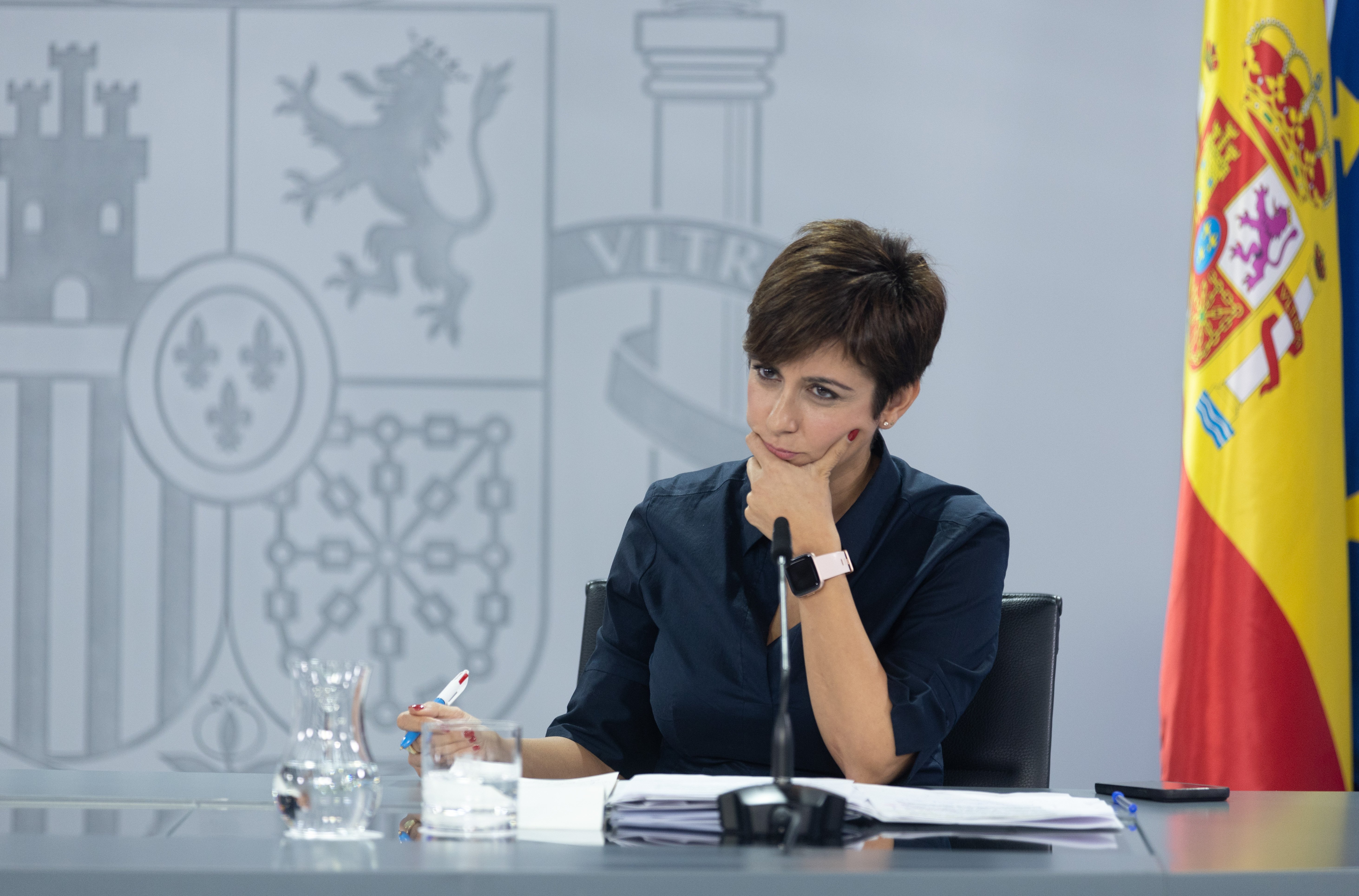The Spanish government has come out in defence of its reform of the Penal Code and the decision made by Supreme Court judge Pablo Llarena regarding Carles Puigdemont. Isabel Rodríguez, spokesperson for the executive led by Pedro Sánchez, has stated that Llarena's decision not to charge the Catalan president in exile with aggravated public disorder (the reformulation of what was previously the Spanish crime of sedition) but to maintain his prosecution for misuse of funds and add disobedience shows that the 1st October 2017 referendum "continues to be punished". "The conclusion is that those events continue to receive a penal response", she said, in addition to urging Carles Puigdemont and the rest of the exiled pro-independence leaders to "respond before Spanish justice".
Rodríguez insisted that in the reform of the Penal Code, which came into force this Thursday, there are still "tools" to pursue the independence movement in the event that it holds consultations like that of 1st October 2017. "The objective was to harmonize" with the classification of crimes that exist in other countries of the European Union, the spokesperson for the Spanish government told the press. Asked which "tool" the Pedro Sánchez would use now in the event that the independence movement repeated what it did five years ago, the territorial policy minister insisted that the strategy of the executive has always been that of "dialogue” and “the word”. "Today's Catalonia is not the same as that of 2017", she insisted, adding that "the legal system has sufficient elements to avoid events like those".
Marlaska: "Respect the elimination of Puigdemont's sedition charge"
The Spanish interior minister, Fernando Grande-Marlaska, also spoke out on this issue this Thursday, coming out in defence of Supreme Court judge Pablo Llarena's decision to drop the accusation of sedition against the former president of the Generalitat, Carles Puigdemont, without replacing it with that of aggravated public disorder. "We must respect court rulings", said the minister when he arrived to open a road safety conference at the Congress of Deputies, while limiting himself to commenting that "the terms of court rulings must be complied with" .
Meanwhile, transport minister Raquel Sànchez reiterated that the reform of the Penal Code promoted by the PSOE-Podemos executive "does not mean establishing fewer guarantees or decriminalizing". The Catalan Socialist minister also applauded the work done by the government led by her namesake Pedro Sánchez, in relation to its strategy towards Catalonia: "It has contributed positively to restoring coexistence".
Clara Ponsatí and Marta Rovira can return to Spain
One of the most outstanding points of Llarena's decision is that two of the pro-independence politicians in exile, Catalan government minister Clara Ponsatí and ERC secretary general Marta Rovira, are now being prosecuted only for the crime of disobedience, an offience for which their international or domestic arrest cannot be ordered, since the punishment is not imprisonment, but disqualification from public office. Thus, from this Thursday Ponsatí and Rovira are able to return to the Spanish state. In the resolution, the judge orders their arrest, but "only for the purpose of taking their statement".

